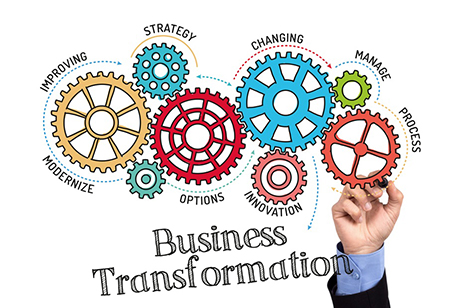Role of Executive Consultants in Business Transformation
By Aveek Pal Chaudhuri
 Taking the example of the digital transformation of businesses, a staggering 73 percent of companies failed to impact the business world. It is presented by the Everest Group. In their study, the management consulting firm said that 78 percent of the businesses did not achieve their objectives. There are several reasons behind the failure of the businesses, where one of the key reasons for it could be the lack of experts’ advice. Not only the digital transformation of businesses fail, other types of business transformations like cost, organizational culture, customer experience, technology, operations, industry, scope, distribution, sustainability, quality, and risk also fail as business heads’ negligence of taking advice from Executive Consultants.
Taking the example of the digital transformation of businesses, a staggering 73 percent of companies failed to impact the business world. It is presented by the Everest Group. In their study, the management consulting firm said that 78 percent of the businesses did not achieve their objectives. There are several reasons behind the failure of the businesses, where one of the key reasons for it could be the lack of experts’ advice. Not only the digital transformation of businesses fail, other types of business transformations like cost, organizational culture, customer experience, technology, operations, industry, scope, distribution, sustainability, quality, and risk also fail as business heads’ negligence of taking advice from Executive Consultants.
Executive consultants comprised of legal consultants, labor relations consultants, conflict resolution consultants, jury consultants, medical consultants, and others assist business heads, CEOs, owners, and budding entrepreneurs with their knowledge and experience to a fruitful transformation of businesses. They have significant knowledge of talent acquisition and can train the employees as required. A transforming business can avail customized solutions from an executive consultant. Going beyond the stipulated business transformation needs, an executive consultant assists personally and guides the business to the epitome of success.
Role Played By Executive Consultants
- When a business is about to introduce a new business model, an executive consultant leads the way with exclusive designing ideas for products that have never been used before. With data from market assessment, executive consultants are able to execute strategies responsible for product glorification that actually meet customer requirements.
- Strategies responsible for maintaining the organizational culture is inscribed by an executive consultant. These strategies are effective in business transformation and create a supportive environment within the organization. Not drifting away from the business’ core values, the executive consultant solemnly obeys the mission and vision involved in upholding organization culture and practices.
- Following the norms set by the organization, the executive consultant is devoted to being the in-charge of an organization's cultural transformation. Considering the impact of self-taken decisions, the executive consultant analyzes the plethora of technicality involved in the organization’s culture, make the employees aware of those, and announce the newly formed vision statement to them. Upon conveyed properly, the executive then takes permission from business heads to implement the same for completing the change in the business.
- Analyzing the market, the executive consultant advises the business heads on the scopes of success of their products/services, the demand among the customers and predicts how they will be responding to those. It is a crucial factor in the transforming business and could be done only by a highly experienced consultant who knows how to keep the curve of the business growth in the positive quadrant.
In context to the distribution and operation of the business, an executive consultant recommends the strategies of using e-commerce platforms perfect for gaining full benefits. Simultaneously, the executive consultant solves challenges related to business operations with innovative methods that are friendly to both the consumers and the operation staff. Finding scope to expand the business horizon is the next step for maintaining business sustainability without compromising on the product/service quality.
Taking business decisions is risky and it is done confidently by a professional – Executive Consultant, who is a driver of business successes. Therefore, finding an exquisite professional before planning business transformation is always suggested.




